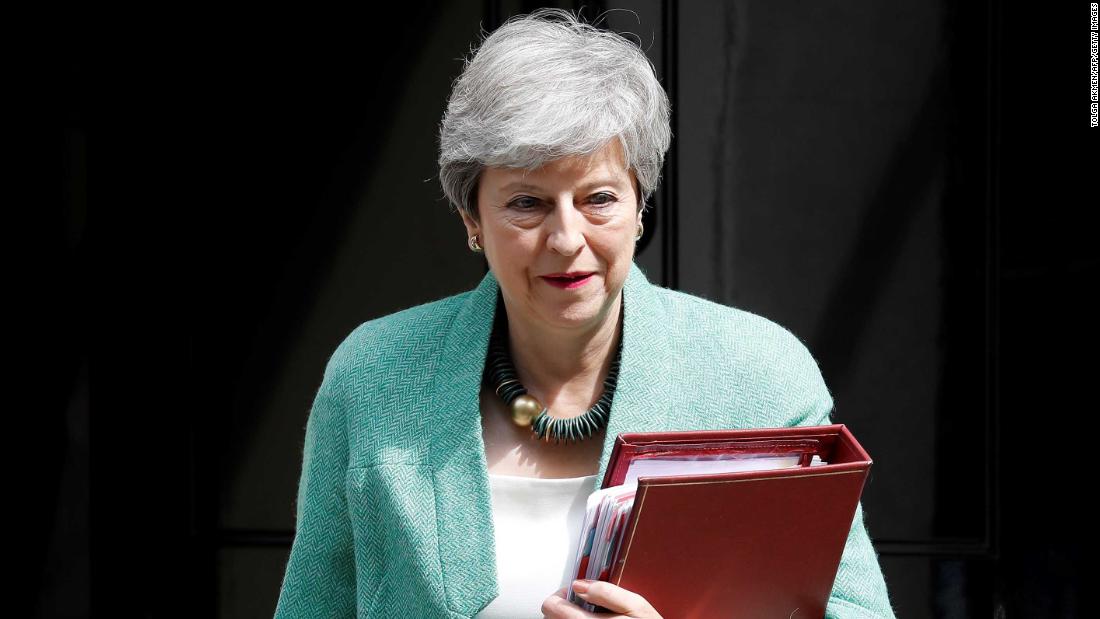Theresa May condemns populism and isolationism in last major speech as British PM - 3 minutes read
 Theresa May condemns populism and isolationism in last major speech as British PM
Theresa May condemns populism and isolationism in last major speech as British PMLondon (CNN)Theresa May railed against the forces of "absolutism" in politics, condemned the rise of populist parties around the world, and lamented her inability to secure Britain's exit from the European Union, in her last major speech as British Prime Minister.
In valedictorian-style remarks at foreign policy think tank Chatham House in London, May targeted politicians of the far left and urged a softening of political discourse from leaders and the public alike -- suggesting that an entrenchment of extremist positions doomed her repeated attempts to achieve Brexit.
She also criticized isolationist worldviews and stressed the importance of protecting the Paris Climate Accord and the Iran Nuclear Deal, in what will widely be seen as a rebuke of US President Donald Trump's foreign policy and his skepticism of international alliances.
"Both domestically and internationally, in substance and in tone, I am worried about the state of politics," May said. "The values on which all of our successes have been founded cannot be taken for granted.
"The spirit of compromise in the common interest is also crucial in meeting some of the greatest global challenges of our time," she added, attempting to promote for a final time her own mantra of pragmatism and moderation.
May will step aside when the winner of the ongoing Conservative leadership contest is announced next week, bringing to an end a three-year tenure that will be defined by her inability to take Britain out of the EU.
On those efforts, May said that "most people across our country had a preference for getting it done with a deal."
"The problem was that when it came time for Parliament to ratify the deal, our politics retreated back into its binary pre-referendum positions -- a winner-takes-all approach to leaving or remaining," she reflected.
"When opinions have become polarized -- and driven by ideology -- it becomes incredibly hard for a compromise to become a rallying point."
The outgoing leader again expressed her belief that a no-deal Brexit would be an unfavorable outcome, but refused to cite her likely successor, Boris Johnson, as a partial source of her concerns. Johnson has repeatedly said he would be prepared to pursue a no-deal scenario.
And May expressed regret over Trump's decision to withdraw from international treaties, in particular the nuclear agreement with Iran.
"It took painstaking pragmatism and compromise to strike that deal," she said. "Whether we like it or not a compromise deal remains the best way to get the outcome we all still ultimately seek -- to prevent Iran from acquiring a nuclear weapon, and to preserve the stability of the region."
Source: CNN
Powered by NewsAPI.org
Keywords:
Theresa May • Populism • Isolationism • Freedom of speech • Prime Minister of the United Kingdom • London • CNN • Theresa May • British Armed Forces • Absolute monarchy • Politics • RISE – Scotland's Left Alliance • Populism • Political party • Brexit • European Union • Prime Minister of the United Kingdom • Valedictorian • Think tank • Chatham House • Politics • Left-wing politics • Extremism • Brexit • Isolationism • Paris • Joint Comprehensive Plan of Action • President of the United States • Donald Trump • Foreign policy • Skepticism • International law • State (polity) • Politics • Value (ethics) • Spirit • Mantra • Pragmatism • Conservatism • Conservative Party (UK) leadership election, 2016 • European Union • Person • Parliament • Politics • Referendum • Plurality voting system • Ideology • Belief • Brexit • Boris Johnson • Treaty • Iran • Pragmatism • Iran • Nuclear weapon •